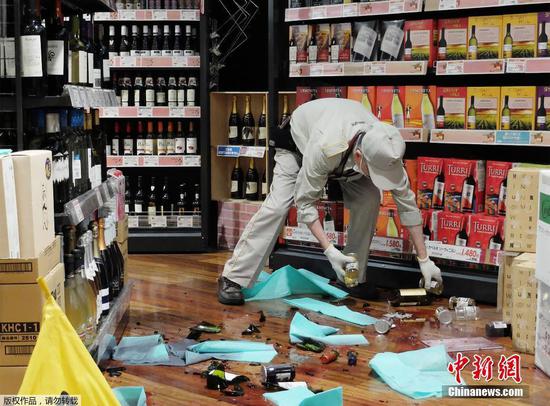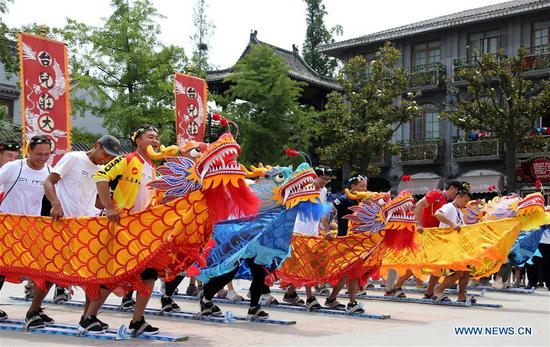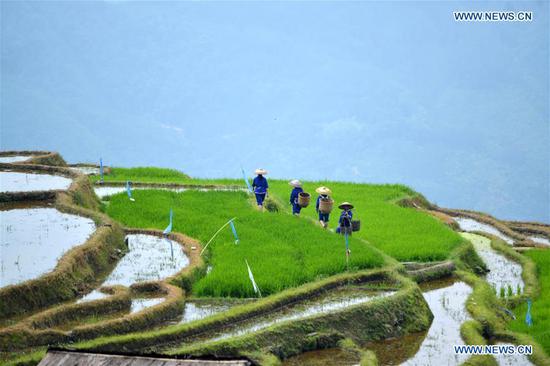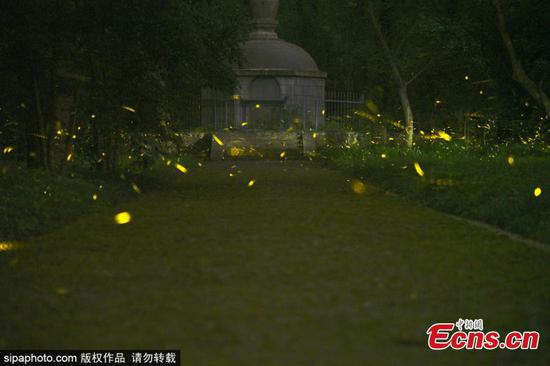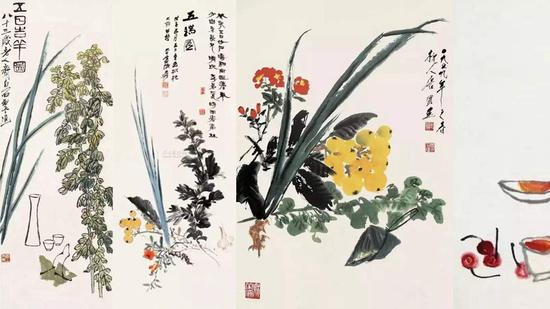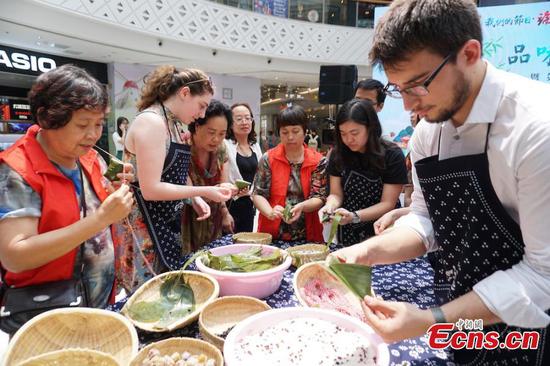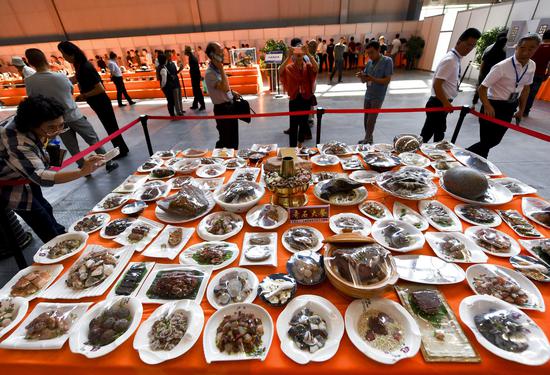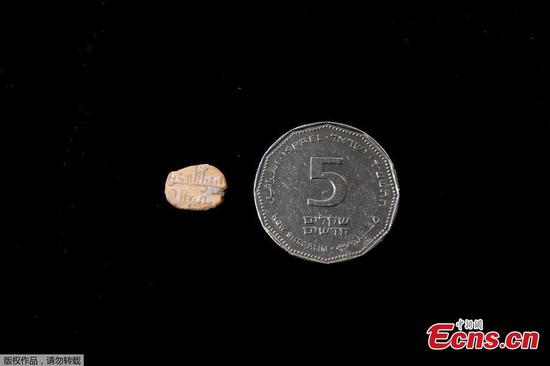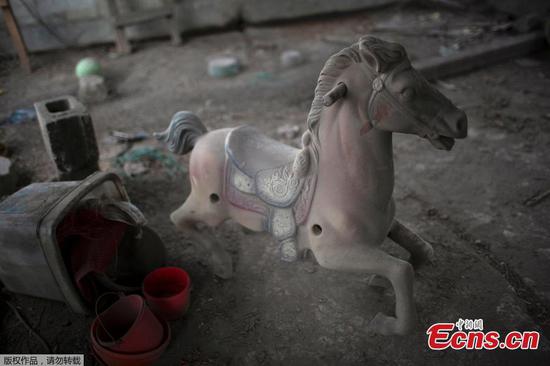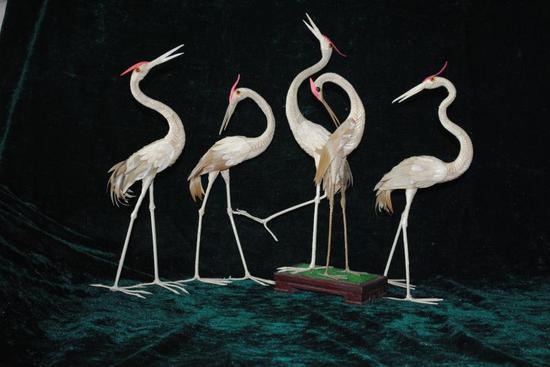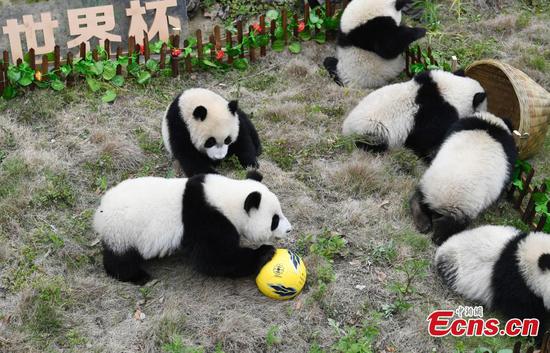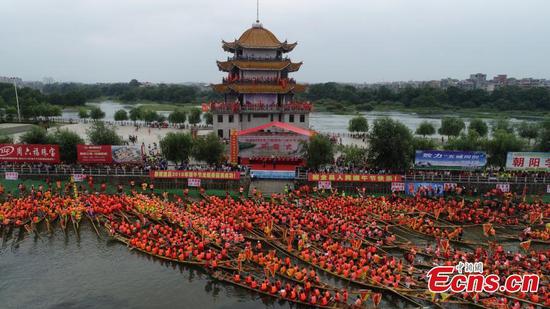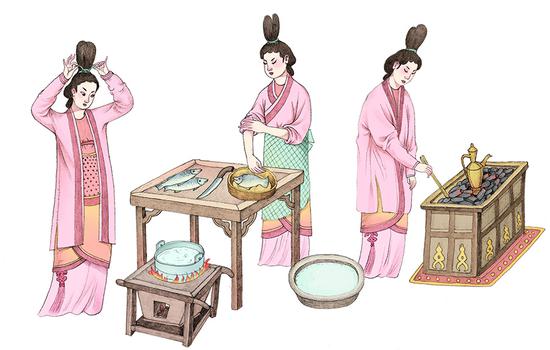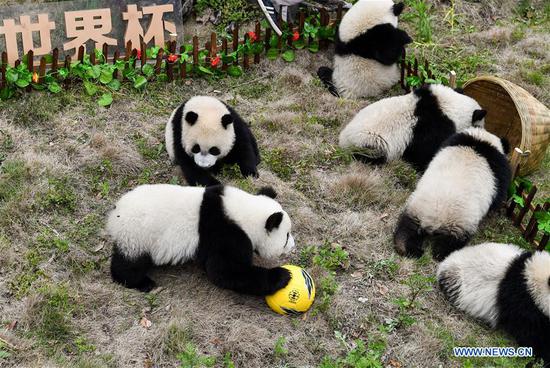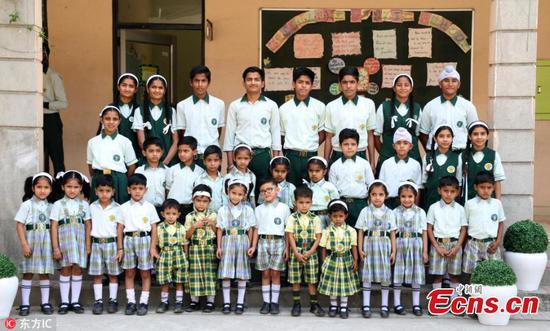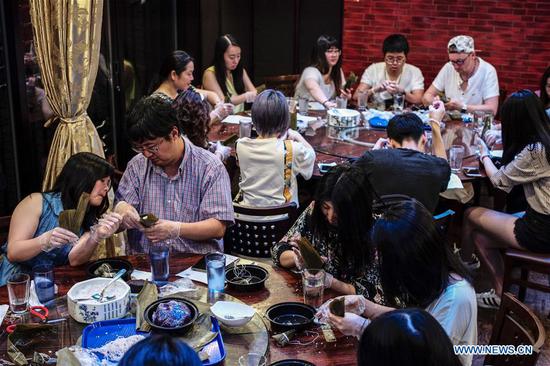
People learn how to make Zongzi, or rice dumplings, at a workshop in a restaurant in Manhattan, New York City, the United States, on June 16, 2018. A famed restaurant in New York City turned itself into a workshop over the weekend for learning to make rice dumplings to celebrate the Dragon Boat Festival, a traditional Chinese holiday that commemorates the death of an ancient patriotic poet Qu Yuan. (Xinhua/Li Muzi)
Hand-wrapping rice dumplings, splashing dragon boats, reciting ancient romantic poems...many New Yorkers marked the Dragon Boat Festival, a traditional Chinese holiday that commemorates the death of an ancient patriotic poet Qu Yuan, with fervor and color over the weekend.
TITILLATING TASTE BUDS
Jasmine, a famed Chinese restaurant in downtown Manhattan, turned itself into a workshop for learning hand-wrapping the rice dumplings on Saturday and Sunday, for people from across the New York City, home to by far the biggest Chinese-American population of any city proper in the U.S..
It was the restaurant's second consecutive year to host such event. Located near the United Nations headquarters, it caters to diners from all nationalities by presenting authentic Sichuan, Cantonese as wells as fusion cuisine.
The rice dumpling, called Zongzi in Chinese, is a centerpiece of the Dragon Boat Festival,or Duanwu Festival, which falls on the 5th day of the fifth lunar month (June 18 this year).
"'A lonely stranger in a strange land I am cast, I miss my family all the more on every festival day,' "said the restaurant co-owner Zuqi Su, quoting a Tang dynasty Chinese poet Wang Wei (699-759). "On a festival like this, we want to help with the homesickness of Chinese living abroad, and introduce traditional Chinese culture to people here."
"We wanted to give Chinese abroad, especially students who have no family here in the US, a sense of home away from home," Su told Xinhua.
Sherrie Wang, a Chinese student studying at Columbia University, was very grateful to Su and his team organizing such a special gathering.
"This is our first time making rice dumplings on our own," said Wang, who has been in the U.S. for six years. "We used to eat a regular meal with friends or buy ready-made rice dumplings from stores on this festival."
The young girl's words were echoed by another college sophomore who did not identify herself.
"Being able to make authentic Chinese festive food and share it with others really helps with the homesickness," said the sophomore. "It can be hard to stand especially in the first few years in the U.S.."
The participants were instructed step by step to make a Zongzi on their own: layer two leaves, with the smooth sides up and form a cone, and add fillings of different kind in proper order. Then add another leaf around the edge of the cone to make it wider and fold the leaf towards the middle, upper remaining part of the leaves towards the back. Finally use kitchen string to wrap tightly around the dumpling.
Wrapping a rice dumpling is quite a challenge, especially for a beginner.
"It's honestly harder than we thought, but it's really fun!" said Annie Lin, a Chinese college student, struggling to wrap the string around her "artifact."
"My daughter loves cooking, and I wanted to take this chance to introduce her to the traditional Chinese culture, which I myself didn't know much about either," said Yan Shao, who brought her U.S.-born daughter to the event.
"I get to see glimpses of Chinese culture through my Chinese friends," said Thomas Hasler, an Austrian who came with his Chinese friend Hanming Zeng. "I eat out a lot at Chinese restaurants, but being able to make something has been so much more fun. I enjoy this so much."
"I try to introduce Chinese culture to my friends," said Zeng. "Sometimes I bring them to restaurants like this."
Anirudh Singh, another participant, was able to recount the origin of the Dragon Boat Festival. "The fishermen threw rice in the river to make sure the fish didn't eat Qu Yuan's body, right?" he said. "I learnt all about it before I came here."
Singh was quite right. The festival began in China's Spring and Autumn (770-476 B.C) and Warring States periods (475-221 B.C). Qu Yuan was a minister of Chu, located in the Yangzi River area of central China.
In 340 BC, Qu was facing the pain of losing his homeland. Later he drowned himself in the Miluo River on May 5. The people of Chu were very sad.
To prevent fish from eating his body, the locals wrapped leaves around rice and put them into the river while beating their drums and splashed their paddles on boats.











